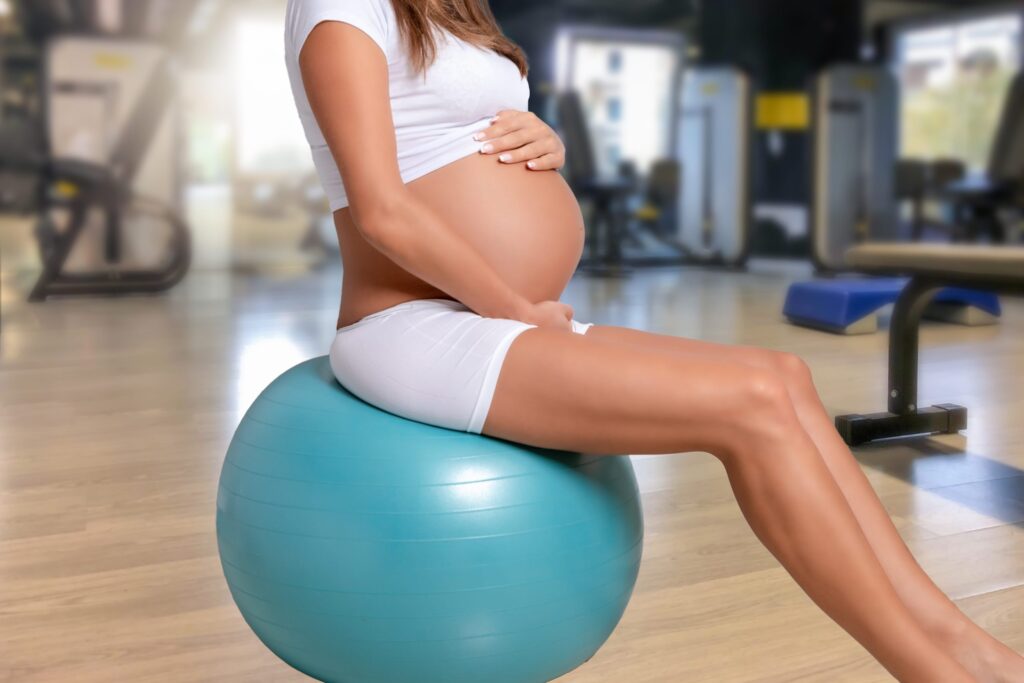
Post-Partum Physical Therapy

Seeing A Physical Therapist After Delivery Should Be the Accepted Standard of Care
Post- Partum Changes
During pregnancy, women see their physician for a 6-week checkup. However, most women are not told about the unexpected things that may occur following pregnancy. These problems may include urine leakage, pain at their episiotomy scar or C-section scar, or even the start of an organ prolapse. Pregnancy is a beautiful thing, but these physical changes can be detrimental to your physical and mental health if not cared for properly.
The Role of Pelvic Floor in Post-Partum
Pelvic Floor Therapy is a newer specialized service offered by specially trained physical therapists in America. However, a referral for Pelvic Floor Therapy is not the “accepted norm” for most 6-week Post-partum women. In Europe, the majority of woman who have experienced childbirth, are referred to a Pelvic Floor therapist at their 6-week gynecological appointment. This SHOULD be the accepted norm in America, but most women that are in the post-partum stage either know very little, or nothing at all about Pelvic Floor Therapy.
Why Is Physical Therapy Important in Post-Partum Recovery?
“Pregnancy causes many long-term changes in a females’ anatomy. Ligaments become lax, posture changes, pelvic floor weakness develops, and there is a shift in the position of a women’s internal organs with the increased weight gain and position of the baby.” says Cara Konlian, owner of Aquacare Physical Therapy and a pelvic floor therapist. “Many of the changes that will occur with pregnancy sets a female up for problems later in life such as incontinence, pelvic pain and urinary prolapse.
Common Problems That Develop Post-Partum
1. Urinary and/or fecal incontinence– All pelvic floor muscles go through some serious stress, and even damage during pregnancy and labor. This can range from just stretching of fascia, ligaments and pelvic floor muscles during pregnancy, or a lengthy pushing phases during labor can compromise the pelvic floor leading to incontinence. Pelvic Floor Physical Therapists can help with this, by teaching moms proper Kegels. Use of EMG biofeedback can be very helpful in teaching a mom how to correctly use the pelvic floor musculature by providing feedback on incorrect compensation or faulty activation of the musculature.
2. Organ Prolapse. A prolapse is the herniation of pelvic organs that may include the bladder, uterus, and rectum through the vaginal opening. The dropping of these organs is due to ligament laxity, which is very common during pregnancy due to hormonal changes. A prolapse can be correlated with more difficult labors and larger babies, and weak pelvic floor muscles. Pelvic Floor Therapy can help decrease the chance of the prolapse getting worse by strengthening the pelvic floor muscles, again with Kegels.
3. A Change in Sexual Function– Sexual dysfunction can develop due to trauma during birth, minor to major tears, suturing following tears, and even changes in hormones. Sexual dysfunction may include increase in pain during sex (dyspareunia), or just general pain in the pelvis, vagina or perineum. Pelvic floor pain is common but shouldn’t be considered “normal”. Pelvic floor pain is mostly contributed to tight pelvic floor muscles or an elevated resting tone in the musculature leading to spasm and pain. Both issues can be tackled with Pelvic Floor Physical Therapy, with manual releases to the pelvic floor muscles, relaxation techniques, and biofeedback down training and patient education
If you are dealing with any of these issues, you may want to consider contacting a trained Pelvic floor therapist to assist you with your post-partum needs.
To find out more about how Pelvic Floor Physical Therapy may benefit you, feel free to schedule a 30-minute free consultation with one of our Pelvic floor physical therapists. Free Consultation.
Writing by- Kaitlyn Willin PTA, treating pelvic floor/ women’s health patients in our Salisbury Injury Center location.



















